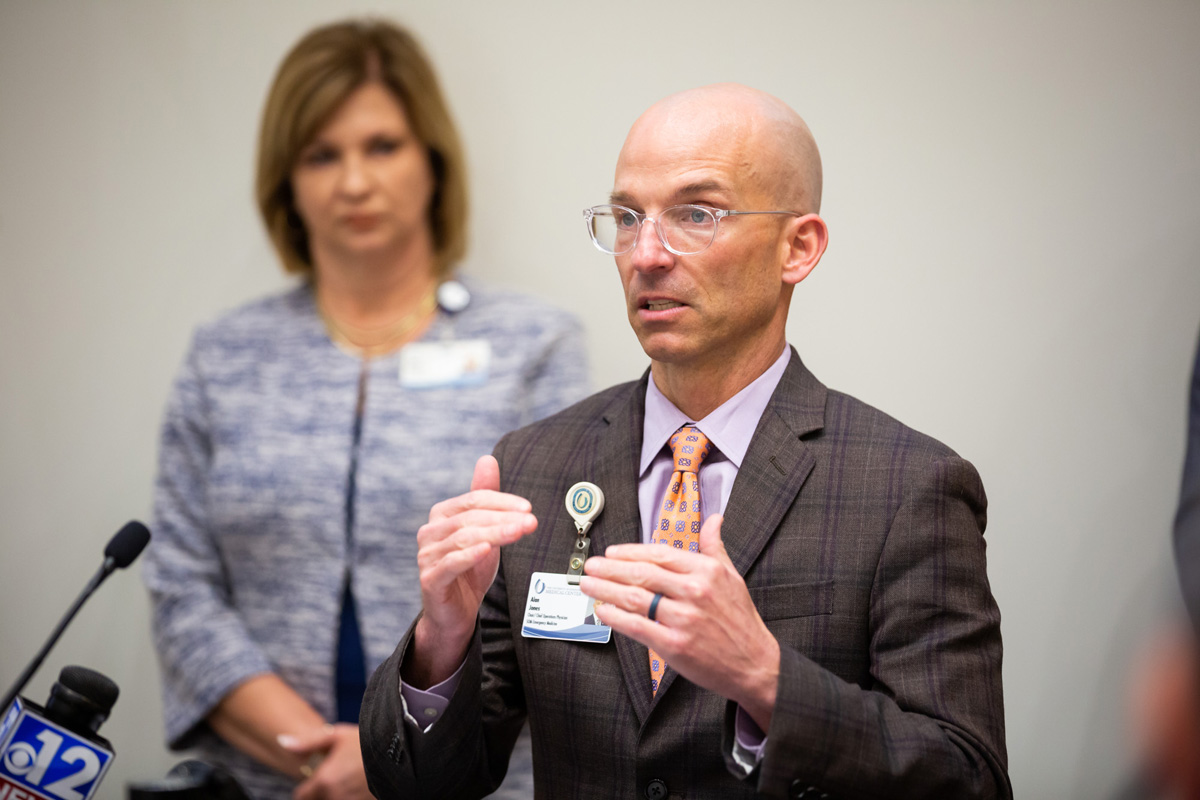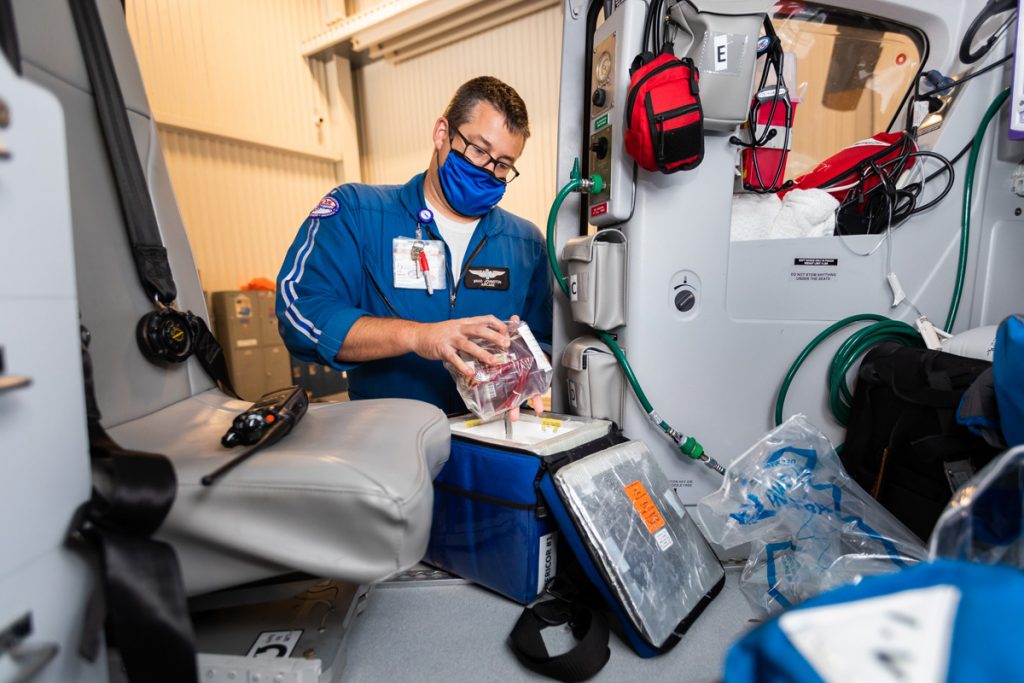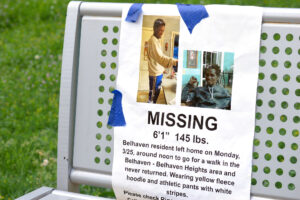Mississippi is in the midst of the worst blood shortage in decades, leaving hospitals bereft of vital supplies for trauma patients and surgeries, presenting a severe threat to the safety and well-being of every resident of the state. Medical professionals are calling for new blood donors to help Mississippi protect its dwindling supply of medical blood.

Merle Eldridge, director of donor recruitment and mobile collections for Mississippi Blood Services, explained the crushing shortage ongoing in the state in a June 29 interview with the Mississippi Free Press. “(We) need anywhere from 250 to 300 donors every single day to meet the needs of our hospitals across the state,” Eldridge said. “Right now, we’re lucky to see 150 to 200. So we’re about 100 short per day.”
The shortfall is unprecedented in Eldridge’s career. Worse still, Mississippi’s endangered supply is only one piece of a nationwide shortage in blood stores, meaning little hope for emergency supplies from out of state.
“Unfortunately, with this being a national blood shortage, there’s not even blood available from our partners across the country to ensure that we’re able to fill the orders at our hospitals here in Mississippi,” Eldridge said, continuing. “This means, sadly, that many patients and their families are being told that the blood’s not available to use in their treatments.”
For many hospitals, the situation is dire and worsening quickly. Others are already at the precipice of disaster. In the middle of the interview, Eldridge was alerted to a Mississippi hospital with a below-critical supply of blood. “(They’re) telling us that they literally have one unit of O+ and one of O- on their shelves and need to know what they can do. So that’s where we are,” she said.
Every Mississippian can assist in bringing this crisis to an end, simply by giving blood. Donors must be 17 years old, or 16 with parental approval; weigh at least 110 pounds in “generally good health.” The process itself is strikingly easy, with only 10 to 15 minutes of blood draw before another 15 minutes for recovery with a free snack at the canteen. Additional restrictions are described in the screening process.
Blood-drive locations, including on weekends, are easily found across the state by visiting https://www.msblood.com/calendar/. Additionally, donors can complete their donor history form on the MS Blood Services website on the same day as their donation, speeding up the process of providing vital blood to the state’s hospital system.
Eldridge does not mince words in describing the severity of the present moment: “If you want me to be completely honest with you, it is worse right now than it was smack dab in the middle of the pandemic.”
‘What Can We Do?’
Dr. Alan Jones is assistant vice chancellor of the University of Mississippi Medical Center. The blood shortage facing Mississippi—and the U.S. as a whole—weighs heavily on his mind. “UMMC is the only level one trauma center for the state. The blood shortage affects us in ways it doesn’t affect others,” he said in an interview.
As the only in-state destination for victims of extreme trauma, like gunshots and car crashes, UMMC can tear through stockpiles of blood. “We might give 20, 30, 40 units of blood in a short amount of time, based on the severity of the injury. When we hit that critical shortage level, just one severe trauma patient could knock out our whole supply.” Additionally, UMMC’s AirCare medical helicopter transport is responsible for remote access to hundreds of units of blood supply for trauma centers across the state every year.

UMMC is trending in a dangerous direction even now. “We’re presently at about 50% of where we would like to be with our O+ supply, which is really the blood that we use the most of,” Jones said. O+ blood is highly valued as the most common blood type, unlikely to cause complications in recipients.
Jones, like Eldridge, sees similarities with the stress on the hospital system from coronavirus, a long supply chain that nationwide trends have stretched to the limit. “This is a confluence of multiple things. We’ve entered the summer months, which is a higher season for traumatic events. People are going back and getting procedures, but we still have lower donations,” Jones said. He guessed the cause was a general aversion to clinical settings from the pandemic.
But blood-drive locations are highly sanitary, safe locations. And the need for blood is immense, Jones added. “Any person that’s walking around right now has the expectation that, if they were to have an unplanned illness or injury, they would be able to go to a hospital and blood would be available to them,” he said. “Our biggest fear is that we have someone who needs blood, and we don’t have blood to give.”
Complacency is partly to blame for the crisis approaching Mississippi’s hospitals, Jones said. “It’s easy to think, ‘well, somebody’s gonna do it.’ It’s easy for it to be out of sight, out of mind. But just one unit of blood could save a life.”
Eldridge agreed. “One of the great things to know when you’re donating blood is that there is a guarantee that the unit you donate that day can split into saving as many as three lives. There’s no doubt that every unit that comes into the building here at Mississippi Blood Services is going to be sent out to a hospital and a patient in need,” she said.
Like the pandemic, which still simmers in the background of the current medical crisis, Mississippi’s blood shortage is a problem that only collective effort can solve.
“We work really closely with a lot of cancer patients and sickle-cell patients. We’re hearing from the families saying ‘what can we do?’ Because they’re being told that the platelets aren’t available, the red blood cells aren’t available for their daughters and sons. We hear on a daily basis about these families who, where treatment can be postponed, it is,” Eldridge said.
Jones, with the rest of the state’s medical profession, is asking for help on behalf of these families. “It’s about peace of mind,” Jones said. “For yourself, your families, your loved ones.”










